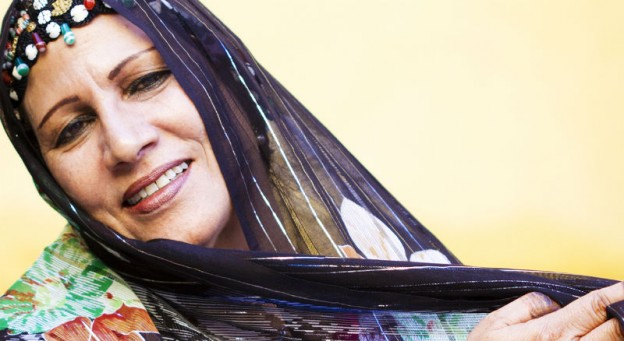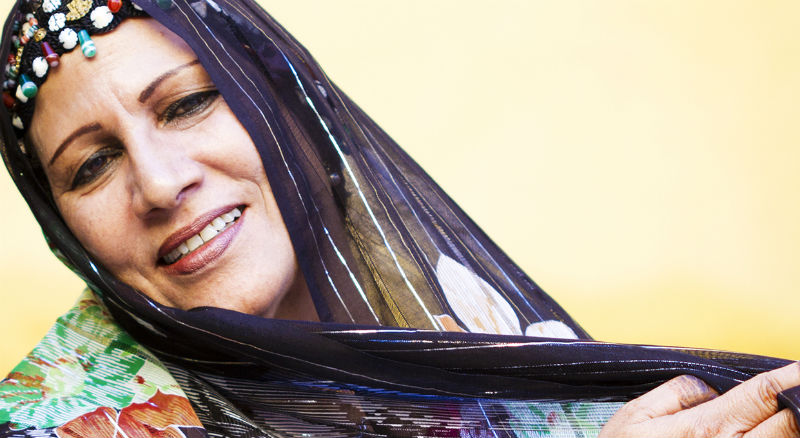Clandestino Festival spring edition 4 May Stora Teatern Göteborg
Mariem Hassan, with her very special ornamented and almost bluesy singing voice, is often called the most prominent musician of Western Sahara. She is a figurehead of women’s liberation in Northen Africa, but also a symbol of the Sahrawi people’s fight for liberation from first the Spanish colonial power and later the Moroccan occupation. When Morocco invaded Western Sahara in 1975, she was 17 and allready a performing musician. She and her family took refuge to Algeria along with a great part of the Sahrawi population. A couple of years later, an opportunity materialized to spread the word about life in the refugee camps, along with a chance to embark on an international music career: She went on tour to Europe, Africa and Cuba with the band Luali.
After performing in a number of different constellations, Mariem Hassan started her own band in 2004 together with friend and guitar geniuos Baba Salama, in which she explored various methods of modernizing and stretching the traditional haul sound. This was the beginning of a long and productive period of touring and recording, however interspersed with numerous hiatus due to visa issues and health problems. Mariem Hassan had found something new with her band: The music has since then been intensily rhythmic, and thanks to a band consisting of two percussionists and two electric guitarists, she has managed to create an electric version of Western Saharan traditions.
The songs are powerful stories about struggle and tragedies but also about tenderness and love. Among many other subjects, she has written a musical reply – paragraph by paragraph – to Felipe González’ speech 1976 to the Western Saharan refugees, critisizing the Spanish socialist for having not kept his promisses. On her last album “El Aaiun egdat” (El Aaiun burns) Hassan is inspired by Sahrawi protests during the Gdeim Izik camp in 2010, and by the Arab spring. Musically this album differs from the two previous by allowing blues and jazz into the musical mosaik – a fierier version of the desert blues band Tinariwen to some ears. The lyrics – in hassania and occasionally in Spanish – are partly written by Western Saharan exiled poets such as Ali Bachir and Lamin Allal.
Mariem Hassans life and music is the subject of a documentary, ”Mariem Hassan, la voz del Sáhara”:

